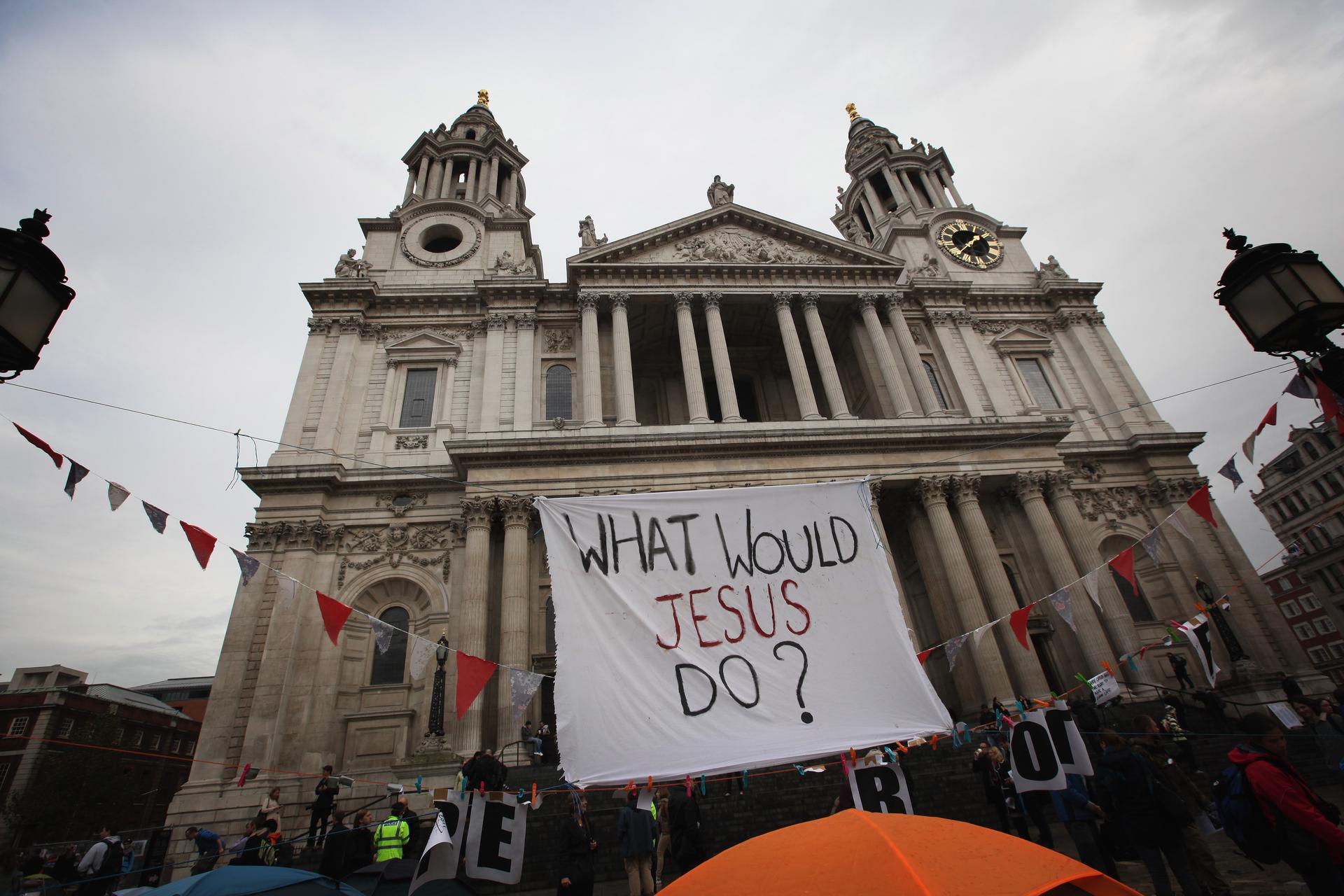Euro crisis deal: questions remain + Occupy London’s day of decision
The Occupy London protest at St. Paul’s Cathedral. The Cathedral has been shut to visitors for a week because of the protest. During World War II at the height of the Blitz it was only shut once: for four days. Yesterday, cathedral canon Giles Fraser resigned over the way his colleagues have handled the situation.
Part 1:
One secret of a successful EU negotiation is that it allows leaders facing elections to go back to their capitals and say, "I did it … I made sure your interests were preserved."
Last night French President Nicolas Sarkozy – facing an election in the spring – went on French television for more than an hour to tell his countrymen how he had saved not just them, but Europe. According to Le Monde 11.9 million people watched Sarko.
Among the French President's more pungent thoughts: Greece should never have been allowed into the Euro in the first place. It had been allowed to join on the basis of "false figures."
He also reminded his viewers that this was not just a deal for Europe: "If we hadn't reached an accord last night, it would not have been just Europe that would have sunk into catastrophe … but the whole world."
Sarkozy's speech represents an old tradition … a newer one is that following a summit on an economic crisis, China is contacted to see if it can help. Klaus Regling, head of the European Financial Stability Fund, is in China today trying to get the Chinese government to invest in the ESFS and/or the recapitalization of Europe's banks.
We should know more about how Regling's visit went at next week's G-20 summit in Cannes.
But the underlying problem of the European economy – not addressed at the Brussels get together – is best exemplified by two headlines in Britain's papers. Britain is not part of the euro but that hasn't saved it from economic difficulties.
One headline is about another member of the Bank of England's monetary committee claiming Britain is about to slide back into recession. The second is that chief executives of FTSE 100 companies averaged 49% pay increases last year.
Part 2:
As I predicted yesterday, Canon Giles Fraser, of St. Paul's Cathedral, has resigned his post. Canon Fraser had been close to the Occupy London protesters camped out on the cathedral's front steps. This has re-focused attention on Occupy London.
Everyone is weighing in on the subject including former Archbishop of Canterbury George Carey.
Like Occupy Wall Street, the London group have been a little slow in formulating their demands but today the group is going to publish them. They are all aimed at making the City of London more transparent – something regulators have been trying to do without success since the crash of Lehman Brothers.
The City has an autonomy that Wall Street can only envy … it has quasi-governmental authority over its territory, famously a Square Mile centered around St. Paul's.
The protesters want that to end.
Eventually the encampment is going to be cleared out … it will not be a pretty sight.
Part 3:
Finally, proceedings are under way in France to get an iPhone app banned globally. It is called Juif ou Pas Juif – Jewish or not Jewish. It allows users to type in the name of public figures to find out whether they are Jewish or not.
Last month Apple agreed to make the app unavailable in France, now lawyers representing French anti-racism groups are trying to have it banned around the world.
Interesting case. Juif ou pas Juif was set up by a French Jew, Johann Levy. He told the Jerusalem Post he did it to instill Jewish pride. Most of those raising objections are French Jews, who remember a not too distant past when some Frenchmen denounced to the Gestapo their Jewish neighbors … even those so thoroughly assimilated you would have had to look up on a birth registry what their religion was.
We want to hear your feedback so we can keep improving our website, theworld.org. Please fill out this quick survey and let us know your thoughts (your answers will be anonymous). Thanks for your time!
